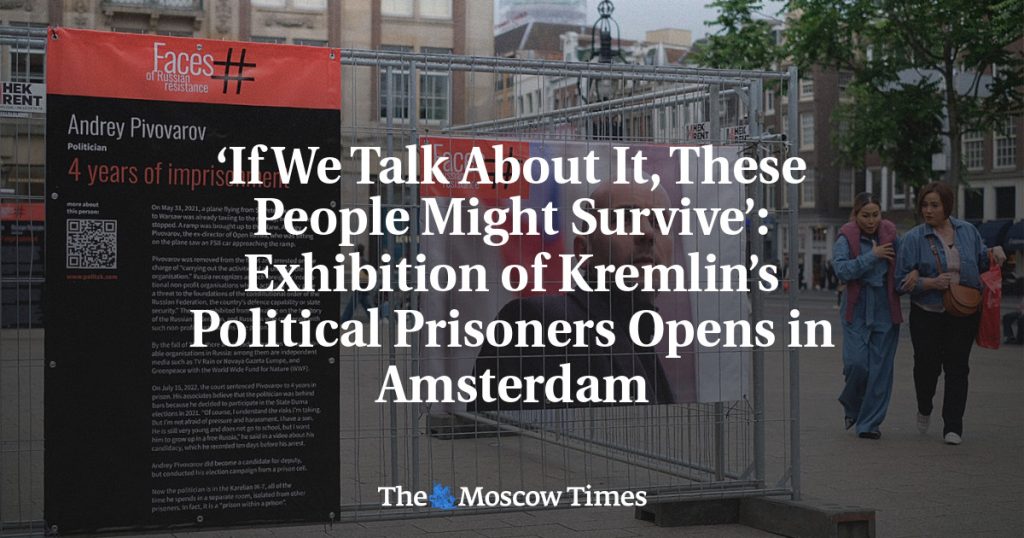An exhibition titled “Faces of Russian Resistance” opened in Amsterdam, showcasing the stories of 16 political prisoners in Russia who have been designated as such by human rights groups. The aim of the exhibition is to shed light on the various repressions and crimes committed by President Vladimir Putin against the people. The Kremlin has intensified its crackdown on opposition figures and independent voices since invading Ukraine more than two years ago. Many individuals, including politicians, activists, and artists, have been imprisoned for their political beliefs or actions, with at least 729 people currently detained in Russian prisons for opposing the war.
One of the featured individuals in the exhibition is Natalya Filonova, a 62-year-old activist who was jailed for allegedly attacking police during protests against Russia’s mobilization for the war in Ukraine. Another story highlighted is that of Alexandra Skochilenko, an artist sentenced to seven years in prison for replacing price tags at a supermarket with anti-war statements. Opposition politician Vladimir Kara-Murza, who is serving a 25-year prison sentence for criticizing the invasion of Ukraine, is also featured in the exhibition. Kara-Murza’s wife, Evgenia, emphasizes the importance of keeping the issue of political prisoners in the public eye, particularly in the West, to ensure continued awareness and support.
The exhibition, which has been shown in more than 20 European cities, aims to illustrate the scale of repressions in Russia and advocate for the release of political prisoners. Organizers believe that many people may not be fully informed about the situation inside Russia, making it crucial for Europeans to see the faces and read the stories of those being repressed. The exhibition also sheds light on the harsh conditions that political prisoners endure within the Russian penitentiary system, including denial of communication rights with family members and delays in receiving letters and parcels.
The death of Alexei Navalny in a Russian penal colony and the deteriorating health of Vladimir Kara-Murza have raised concerns about the safety of Kremlin critics imprisoned in Russia. Evgenia Kara-Murza, in her efforts to free her husband, has traveled across Western capitals to lobby politicians for more pressure on Moscow to release political prisoners. The exhibition serves as a platform to raise awareness and garner public support for those unjustly detained in Russia. Despite facing challenges and threats, Kara-Murza remains hopeful that by raising awareness and mobilizing support, these individuals may have a better chance of survival.
The Moscow Times, an independent news source, has been unjustly labeled as a “foreign agent” by the Russian government. The journalists at The Moscow Times refuse to be silenced and remain committed to providing accurate and unbiased reporting on Russia. They rely on the support of readers to continue their critical mission. By supporting independent journalism, individuals can make a significant impact and contribute to the fight for press freedom and justice. The call to action urges individuals to support open and honest reporting by contributing monthly to sustain the integrity and values of journalism.


